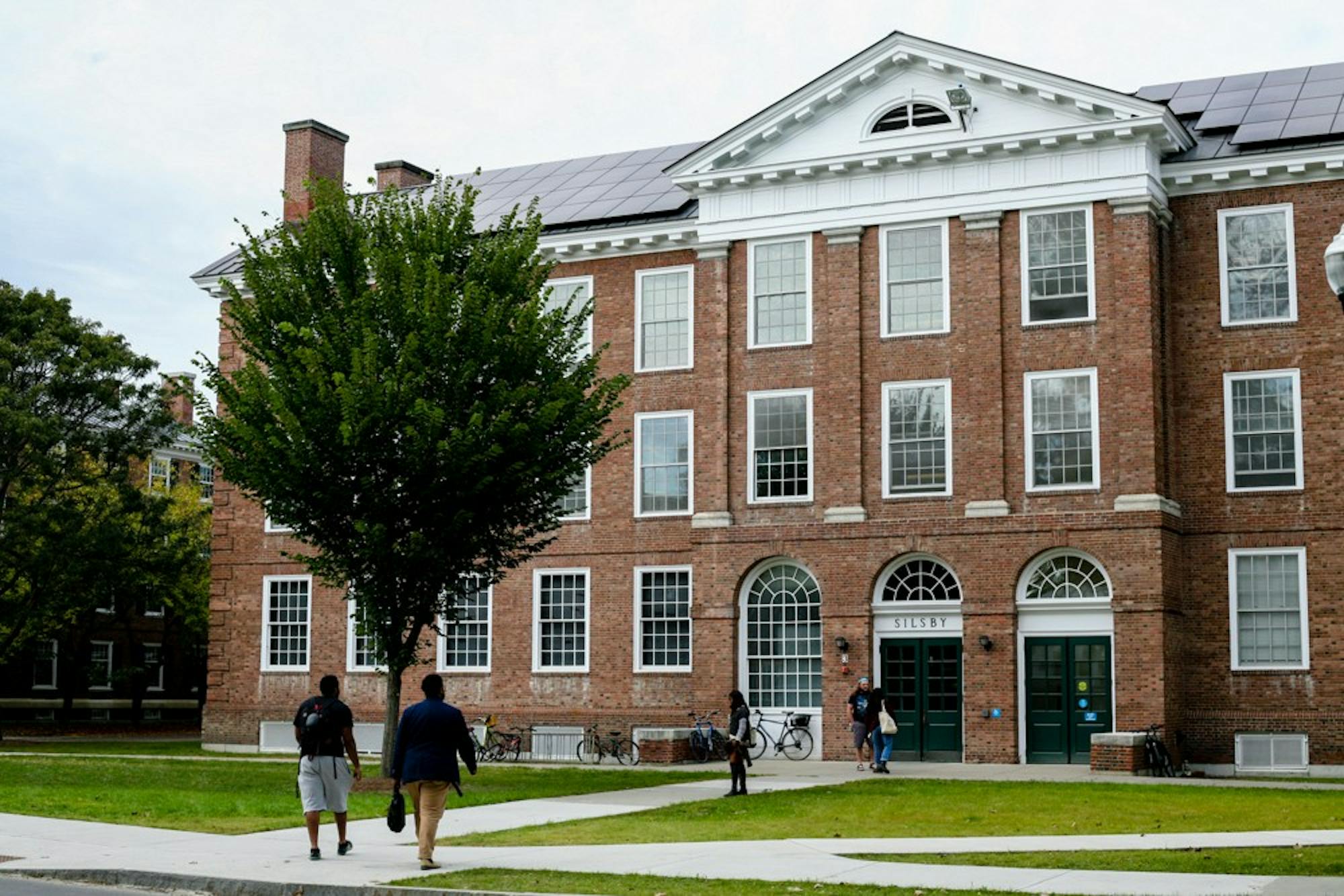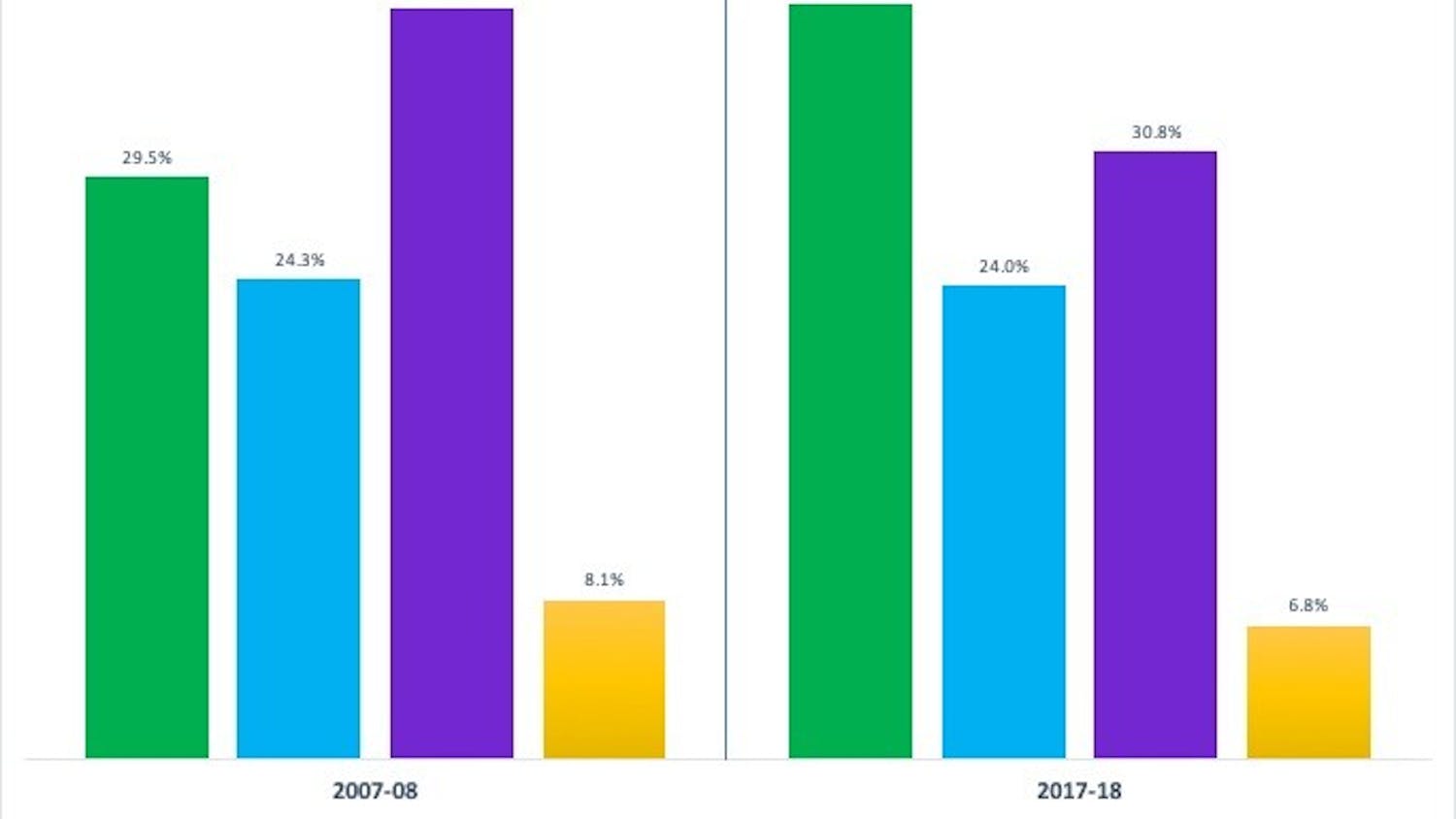Starting this fall, Dartmouth’s government department will offer three new modified majors, collectively called politics, philosophy and economics. In addition to the traditional government major, students will be able to major in “government modified with economics,” “government modified with philosophy” and “government modified.”
The first two offerings, “government modified with economics” and “government modified with philosophy” are government majors with additional classes in economics and philosophy respectively, while “government modified” includes classes in government as well as two classes in each philosophy and economics.
“The government department notoriously hasn’t modified majors in many decades,” said government professor James Murphy, who initiated the PPE offerings.
Despite the difficulty in modifying the major in the past, Murphy noted that government students frequently take philosophy and economics classes to complement their main courses. He said he believes that the new PPE modified majors offer “official recognition on the transcript for the kind of interdisciplinary coursework these students have been doing anyway.”
Murphy also cited the Political Economy Project — a program that combines a variety of viewpoints regarding the intersections between economics, politics and ethics — as another reason for the modified offerings.
“[The Political Economy Project] has brought a lot of attention, funding, courses, new faculty to the college precisely to teach political economy, which is an essential component of PPE,” Murphy said.
Philosophy department chair Samuel Levey echoed this sentiment.
“The Political Economy Project is the place where the natural overlap of these areas already exists,” Levey said. “I think the time was right for there to be more integrated curricular programming.”
The Politics, Philosophy and Economics program was first established at Oxford University in England in the 1920s, and has famously graduated a significant proportion of Britain’s elite. According to Murphy, there are PPE programs at more than 200 universities around the world.
“It’s quite an internationally successful program, and no wonder,” Murphy said. “Politics, philosophy and economics represent the most fundamental tools that students will need to address real-world problems.”
Murphy believes that the value of PPE originates from teaching students about the intersection of these fields.
“Problems in the actual world don’t come separated into political problems, economic problems, or moral and philosophical problems, so you need a complete toolkit to address [them], and that’s what PPE offers,” Murphy said.
The three government modified majors will be available to every current class. According to Murphy, some seniors may be eligible to change their declared majors towards PPE. Similarly, the government honors thesis program is open to the three modified majors, according to Murphy.
“Students could work with economics and philosophy faculty as part of their government thesis program,” Murphy said.
Opinions differ as to whether PPE could become a self-standing program or department in the future. According to Murphy, provided there is great enough interest in PPE, faculty could potentially propose it as an independent program or department. Levey similarly stated that such an endeavor could work at the College if it hired faculty to teach all the classes in the right areas.
Economics department chair Nina Pavcnik said that there may not be the need for a new department because the liberal arts education offered at Dartmouth reduces the need for a pre-defined PPE department.
Whether these modified majors will alter the numbers of traditional majors in government, philosophy or economics remains to be seen. According to statistics provided by the College’s Office for Institutional Research, economics and government are the most popular majors at the College, each comprising 14 percent of the student body.
According to Murphy, many people opting for one of the modified majors would likely major in government anyway. However, he said he believes the new interdisciplinary options could potentially attract new students to the government major, and Levey said there could be a strong surge of interest in the ethics and political philosophy classes related to the modified majors.
Pavcnik noted that it will be difficult to quantify its impact because “[PPE] is a very different major from the regular economics major.” She added that it was up to students to decide what they wanted to “get out” of the major.
Other universities in the United States have also adopted the PPE model under a variety of forms, including Duke University, Emory University, the University of Pennsylvania, the University of Richmond and Yale University.
Duke offers a Philosophy, Politics, & Economics certificate program, which is an interdisciplinary minor consisting of six classes. The program has been offered since 2004, and was inspired by the PPE program at Oxford, according to Duke professor Michael Munger, the director of PPE at Duke.
At Duke, PPE begins with a “gateway course” and ends with a “capstone course,” both of which are taught every year by several faculty members. The other four classes are a choice of electives from a pre-approved list of courses. According to Munger, while hundreds of students take the gateway course, only 28-35 people finish the certificate every year because of its demanding nature.



